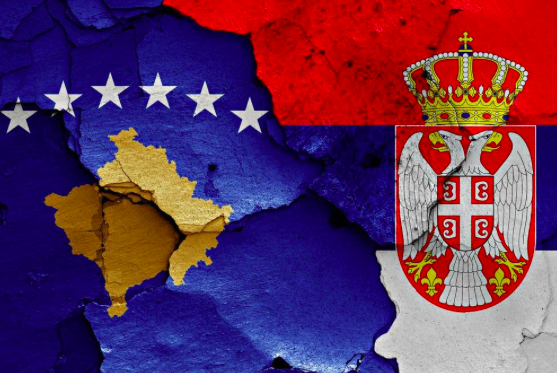A year after the meeting of President Vucic with civil society, most citizens consider that Kosovo is lost and Serbia is not able to reestablish sovereignty, they believe that the Serbian government will not recognise Kosovo and the vast majority would be against recognition at a possible referendum. Additionally, most citizens state that they did not participate in the internal dialogue and do not know what demarcation would mean, but they mostly oppose this proposal. In the end, it is interesting that more citizens oppose the recognition of Kosovo if this would speed up European integration, when compared to how they would vote in the referendum on Kosovo’s independence.
For the fourth year in a row, the Institute for European Affairs in cooperation with Ninamedia Research House, conducted a public opinion survey about Kosovo from 8th to 14th March 2019. The research was conducted on a representative sample of 1207 subjects. The topics of the research were: whether Kosovo was lost, citizens’ participation in internal dialogue, (non)recognition of Kosovo’s independence, demarcation and referendum.
47% of respondents think that Kosovo is lost, while 41% have the opposite opinion, and 12% cannot make a statement. The respondents from the age of 30 to 60 years, with a middle and high level of education, as well as respondents from all regions other than Eastern and Southern Serbia, believe that Kosovo is lost in a somewhat higher percentage.
93% of respondents did not participate in the internal dialogue on Kosovo, 4% do not know, while 3% say that they participated and among them there are slightly more men and respondents with at least secondary school completed.
More than half of the respondents (54%) believe that the current government will not recognise the independence of Kosovo, and most of them are 60 years old, residents of the Western Serbia region with Sumadija. With the increase in education, the number of respondents who believe that the government will not recognise the independence of Kosovo declines. 27% think that the government will recognise independence, while 19% do not know the answer to this question.
78% of respondents state that they would not support Kosovo’s independence in order for Serbia to become a member of the European Union more quickly, and this is more often states by men, while with increasing age, this number is growing. 13% would support Kosovo’s independence in order for Serbia to become a member faster, while 9% does not know.
Almost half of the respondents (49%) believe that it is not achievable that Serbia again has full control and sovereignty in Kosovo, and more often than not, women more than 30 years old, respondents with at least secondary education and inhabitants of the region of Belgrade. 36% say it is feasible, while 15% do not know how to answer this question.
57% of respondents do not know what the idea of division between Serbia and Kosovo means, and this answer is more often stated by women and residents of Eastern and Southern Serbia. As the level of education increases, the number of respondents who declare that they do not understand the idea of demarcation is decreasing. 29% of citizens under the idea of demarcation involve the establishment of a border where Kosovo north would join Serbia and the Presevo Valley to Kosovo, while 14% consider it to be a border line in line with the current administrative line.
41.8% of the respondents say that they do not support the demarcation between Serbia and Kosovo, and this is more often stated by men, respondents aged 30 to 44, as well as residents of all regions except Vojvodina. 24.5% support demarcation (more than 60 years and respondents from the Vojvodina region say more). A fifth of citizens say that they heard, but that they do not understand what is meant by the demarcation, while 9.9% cannot make a statement on this issue, and 3.8 % did not hear about the term.
If a referendum on Kosovo’s independence was to be held tomorrow, 74.5% of the citizens said they would vote against it, and this is true to a greater extent for men, citizens over 45 years of age and respondents with primary and secondary education. In the referendum, 6.2% would vote for Kosovo’s independence, 11.0% of respondents would not vote in the referendum, while 8.3% would not be able to make a statement.



